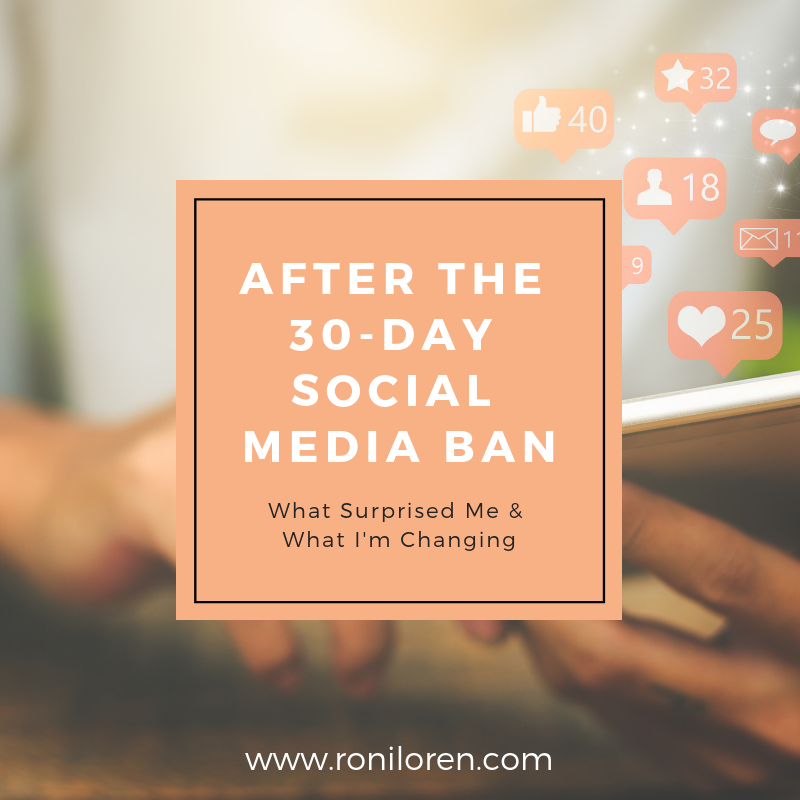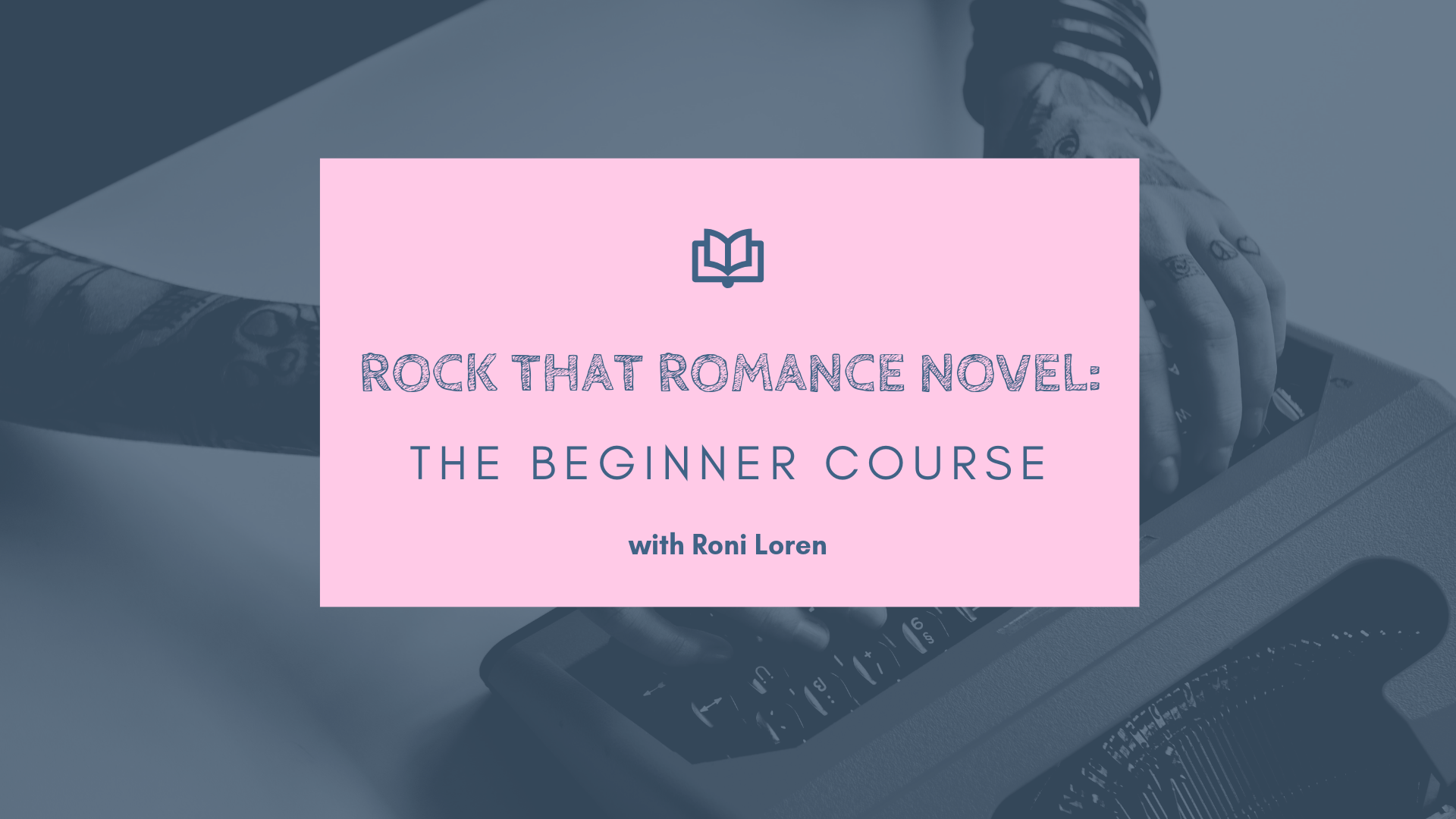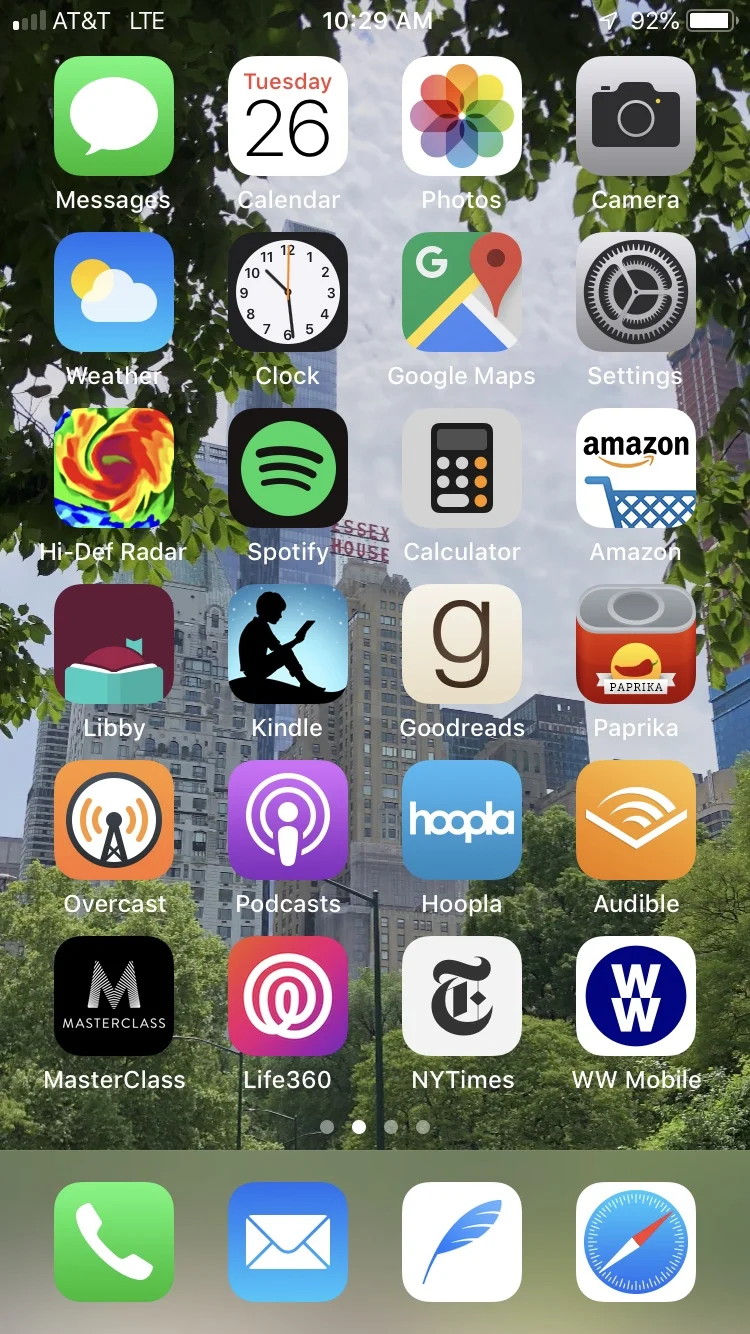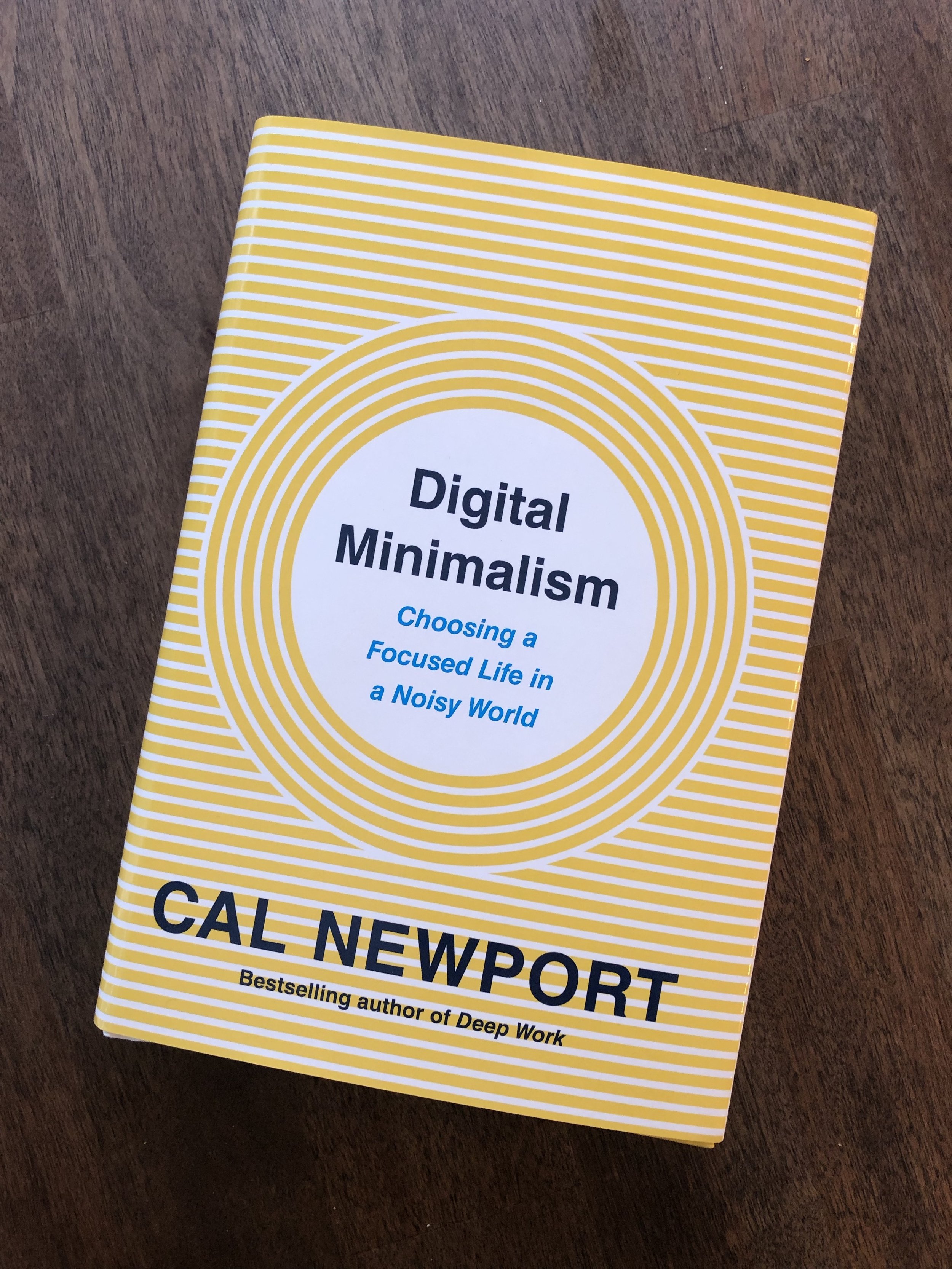In the past few months, I’ve been blogging a lot about my relationship with social media and figuring out how to manage distractions. Really, it’s been a topic on my mind for years, and I’ve come at it in a number of different ways.
If you missed those posts, here’s a quick recap. In February, I did a month with no social media or what Cal Newport calls a digital declutter. I went into my reasons in that initial post. I completed the month successfully and recapped what the experience was like, what I learned, and what I was going to try to do going forward. I also did a post about how I’ve retrained my brain for Deep Work over a two and a half year time period by limiting distractions. Then most recently, I blogged about how, after all this work to corral my own distractions, I didn’t want to be a distraction for you, so I wrote about what I would share and not share online going forward in my post I Am Not Here to Distract You.
See? Told you I’ve been a bit obsessed with this topic, lol. And that’s not even counting all my Device-Free Summer posts about my kidlet from years past.
So, here I am talking about it again because since that month without social media, I’ve been trying to figure out a way to recapture the benefits of that fast while still maintaining a social media presence—something that is a part of my job as a writer. In my post where I outlined what I hoped to do going forward to tame social media, I had high hopes. But I admit that I haven’t stuck to a big chunk of those plans (like only checking social media at lunch.) It’s frustrating.
One thing I’ve learned about myself is that in most habits I want to break, I tend to be an abstainer and not a moderator. (I got this terminology from Gretchen Rubin. See: Are You an Abstainer or a Moderator?) A moderator is a person who can just have a little of something (hence, moderate.) So they want to eat less sugar, but they don’t have to give it up completely. They have the personality that can have one cookie a week and move on.
In the past, I fancied myself a moderator. Because in some situations, I am. (I can make Halloween candy last months. But that’s because I only like candy a little bit.) However, in general, I’ve realized that I’m much more successful as an abstainer. It’s easier for me to have/do something none of the time than some of the time. For instance, about fifteen years ago I wanted to stop drinking soft drinks (diet or otherwise.) I failed at moderating. But once I said, no more, I am not a person who drinks soft drinks—then it was done. Fifteen years later, I still don’t drink them and I’m not tempted to. (This is coming from someone who used to drink like half a dozen Diet Mt. Dews a day.)
Abstaining takes the decision fatigue out of play. I just don’t do that, so there’s no debate to be had. That was why by the halfway point in the social media fast, I had this sense of ahh… I don’t have to think about that. The decision was made. I am not a person who does social media this month.
But, social media isn’t soft drinks. It’s a part of my job. It’s a part of life for most of us. It’s not as easy to just say no more ever. However, trying to moderate it hasn’t gone all that well for me. I’m not anywhere near where I was a few years ago or even pre-fast, but the impulse is still there, distracting me. Should I post? What should I post? I’m bored standing in line, let me look at Instagram. Did someone respond to my comment? How about now? Or now? (Note: I’m not making a moral judgement about social media. If you love it and it works for you, you do you. There are parts I love about it, too.)
So during this past month—which OMG May is trying to kill me with how busy it’s been with general life/family stuff—I’ve been trying to work through a very difficult block in the book I’m writing and finish up teaching my beginners romance writing course. Stress level has been high. I needed all my brain power to figure out the puzzle I’d written myself into and to be present for the students in my class. Posting on social media has mostly fallen by the wayside, but checking it…? Yeah, I’m reaching for it a lot because it’s a distraction from the hard things I’ve got to do.
This, of course, has got me thinking about how to find balance again. The next two months are going to be frenetic because I have a lot of writing to do, a family vacation, and then a trip to New York for RWA (which, of course, falls right before I’m supposed to turn in my book, arg.) I need to clear as much non-essential stuff off my plate as I can. Knowing all that made me want to do a summer-long social media break because: abstainer. But I know that’s not realistic for the long-term, so I’ve decided to try a variation.
I’m going to limit social media checking and posting to one day a week—Friday. This way, I don’t ignore people who have reached out to me and I can share/promote things if need be, but I don’t have a decision to make on a daily basis. I will only check it on Friday so that means every other day, the decision is already made. I’m hoping that will trick my abstainer brain into complying. ;)
I got the Friday idea from this post by Sol Orwell: How to Take Fridays “Off” (and still be insanely productive). The post isn’t about social media but more about how we tend to slack off on Fridays and a way to embrace that. So he reserves his Fridays for reading/learning for a few hours (he saves all the articles and such that he comes across during the week for this time) and also does networking on Fridays. That way, he’s still productive, but the things that could be distractions during the week have their place on his schedule. So taking a cue from him, I’m thinking my social networking can have a happy home on Fridays. I’ll also probably put “reply to non-urgent email” as a recurring task on that day as well. So then those things aren’t free-floating around in my head. They have a spot on the schedule and will be handled.
So starting tomorrow, I’m going to give this new plan a try and see how it goes. If it doesn’t work, it may be social media-free summer for me. But I’ll report back! And if you message me on social media and don’t get a reply for a little while, now you know why!
Have you found a great system to balance your social media or other distractions when you have a big project to work on?












